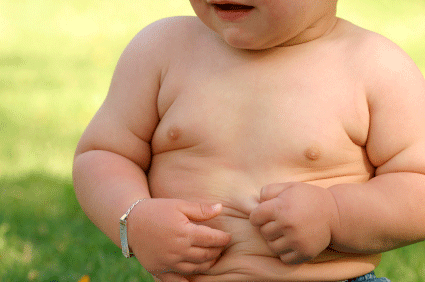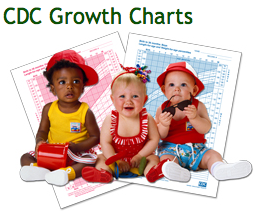|
|
Antibiotics in children promote weight gain
Kids who receive antibiotics throughout the course of their childhoods gain weight significantly faster than those who do not, according to new research. A study suggests repeated antibiotic use leads to a lifelong higher Body Mass Index.
The findings by Johns Hopkins Bloomberg School of Public Health, were published Oct. 21 in the International Journal of Obesity. They suggest that antibiotics may have a compounding effect throughout childhood on body mass index (BMI), a measurement often used to determine whether someone is at a healthy weight.
"Your BMI may be forever altered by the antibiotics you take as a child. Data suggests that every time kids get antibiotics, they gain weight faster over time."
Brian S. Schwartz MD, MS, Professor, Department of Environmental Health Sciences, Bloomberg School, and study leader.
For the study, Schwartz and his colleagues analyzed Geisinger Health System's electronic health records on 163,820 children between three and 18 years old. From Jan. 2001 to Feb. 2012, they examined body weight and height (which are used to determine BMI) and antibiotic use in the previous year as well as any earlier years for which Geisinger had records for the children.
By age 15, children who had taken antibiotics seven or more times during childhood weighed about three pounds more than those who received no antibiotics.
Approximately 21 percent of the kids in the study, or almost 30,000, had received seven or more prescriptions during childhood. Schwartz says that the weight gain among those frequently prescribed antibiotics is likely underestimated as children did not stay with Geisinger throughout childhood. So their lifetime antibiotic history, including antibiotics used outside the health system, will not be recorded. Because certain antibiotics are stronger than average, which antibiotic is given impacts study results.
"While the magnitude of the weight increase attributable to antibiotics may be modest by the end of childhood, the effects are cumulative raising the possibility that these effects continue and are compounded in adulthood."
Brian S. Schwartz MD MS.
Scientists working with penicillin learned early on that it caused weight gain in animals. Modern industrial farming includes small quantities of antibiotics in daily animal feed to fatten up the animals in an accelerated time frame.
So a connection with weight gain makes biological sense, Schwartz adds.
In humans, meanwhile, there is growing evidence that antibiotics could lead to weight gain because of the effect that they have on microbiota — those microorganisms that inhabit our body. There are 10 times more bacterial cells in a human body than even our own cells. Many of these bacteria do their work in the gastrointestinal tract, helping our body digest food and absorb nutrients.
Antibiotics kill off harmful bacteria, but also those vital to gastrointestinal health. Research has shown that repeated antibiotic use can forever change gut microbiota, altering the way it breaks down food and increasing the calories and nutrients absorbed. All of which can increase weight gain.
Prior studies have suggested antibiotic use in the youngest children may cause weight gain, but this study shows that use at any age during childhood contributes to weight gain that accelerates with age.
Schwartz believes physicians are becoming more judicious with their antibiotic prescriptions, but it can be difficult. Often parents demand antibiotics for colds and other nonbacterial ailments. There has always been concern excessive antibiotic use leads to bacteria resistant to antibiotics.
Now, this study suggests that antibiotics can have another long-term effect.
Schwartz: "Systematic antibiotics should be avoided except when strongly indicated. From everything we are learning, it is more important than ever for physicians to be gatekeepers and keep their young patients from getting drugs that not only won't help them, but may hurt them in the long run."
Abstract
Background/Objectives Antibiotics are commonly prescribed for children. Use of antibiotics early in life has been linked to weight gain but there are no large-scale, population-based, longitudinal studies of the full age range among mainly healthy children.
Subjects/Methods We used electronic health record data on 163 820 children aged 3–18 years and mixed effects linear regression to model associations of antibiotic orders with growth curve trajectories of annual body mass index (BMI) controlling for confounders. Models evaluated three kinds of antibiotic associations – reversible (time-varying indicator for an order in year before each BMI), persistent (time-varying cumulative orders up to BMIj), and progressive (cumulative orders up to prior BMI [BMIj-1])—and whether these varied by age.
Results Among 142 824 children under care in the prior year, a reversible association was observed and this short-term BMI gain was modified by age (P<0.001); effect size peaked in mid-teen years. A persistent association was observed and this association was stronger with increasing age (P<0.001). The addition of the progressive association among children with at least three BMIs (n=79 752) revealed that higher cumulative orders were associated with progressive weight gain; this did not vary by age. Among children with an antibiotic order in the prior year and at least seven lifetime orders, antibiotics (all classes combined) were associated with an average weight gain of approximately 1.4 kg at age 15 years. When antibiotic classes were evaluated separately, the largest weight gain at 15 years was associated with macrolide use.
Conclusions We found evidence of reversible, persistent, and progressive effects of antibiotic use on BMI trajectories, with different effects by age, among mainly healthy children. The results suggest that antibiotic use may influence weight gain throughout childhood and not just during the earliest years as has been the primary focus of most prior studies.
"Antibiotic Use and Childhood Body Mass Index Trajectory" was written by Brian S. Schwartz, MD, MS; Jonathan Pollak, MPP; Lisa Bailey-David, DEd, RD; Annemarie Hirsch, PhD, MPH; Sara Cosgrove, MD, MS; Claudia Nau, PhD; Amii M. Kress, PhD, MPH; Thomas A. Glass, PhD; and Karen Bandeen-Roche, PhD.
The study was supported by a grant from the National Institutes of Health's Eunice Kennedy Shriver National Institute of Child Health & Human Development (U54 HD-070725) and the Global Obesity Prevention Center at the Johns Hopkins Bloomberg School of Public Health.
Return to top of page
|
|
|
Oct 30, 2015 Fetal Timeline Maternal Timeline News News Archive

Researchers analyzed electronic health records on 163,820 children between
three and 18 years old from 2001 to 2012. By age 15, children who had taken
antibiotics seven or more times during childhood weighed about three pounds
more than those who received no antibiotics — almost 30,000 children.
Image Credit: public domain
|
|
| |
|



